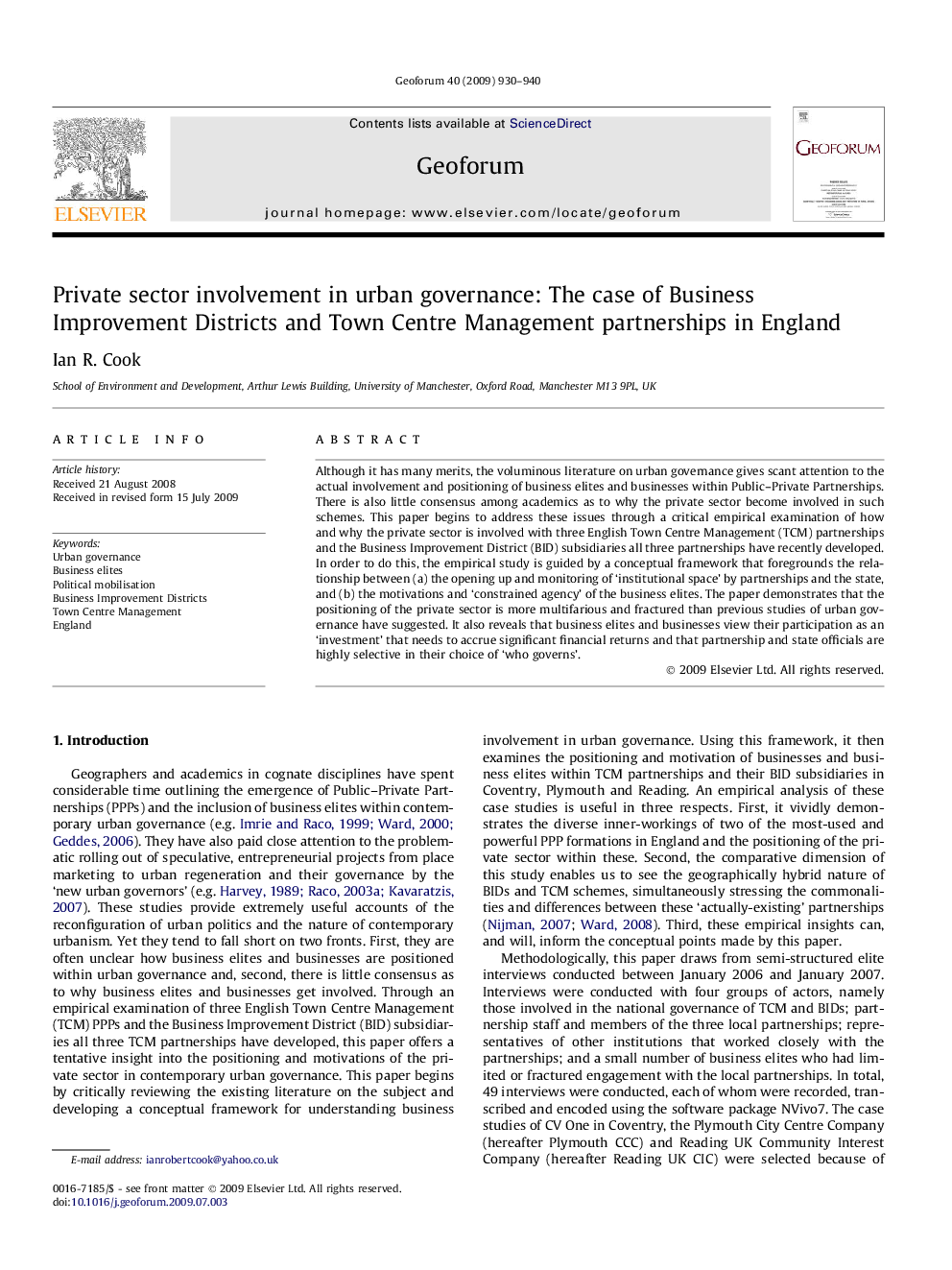| Article ID | Journal | Published Year | Pages | File Type |
|---|---|---|---|---|
| 5074828 | Geoforum | 2009 | 11 Pages |
Abstract
Although it has many merits, the voluminous literature on urban governance gives scant attention to the actual involvement and positioning of business elites and businesses within Public-Private Partnerships. There is also little consensus among academics as to why the private sector become involved in such schemes. This paper begins to address these issues through a critical empirical examination of how and why the private sector is involved with three English Town Centre Management (TCM) partnerships and the Business Improvement District (BID) subsidiaries all three partnerships have recently developed. In order to do this, the empirical study is guided by a conceptual framework that foregrounds the relationship between (a) the opening up and monitoring of 'institutional space' by partnerships and the state, and (b) the motivations and 'constrained agency' of the business elites. The paper demonstrates that the positioning of the private sector is more multifarious and fractured than previous studies of urban governance have suggested. It also reveals that business elites and businesses view their participation as an 'investment' that needs to accrue significant financial returns and that partnership and state officials are highly selective in their choice of 'who governs'.
Related Topics
Social Sciences and Humanities
Economics, Econometrics and Finance
Economics and Econometrics
Authors
Ian R. Cook,
